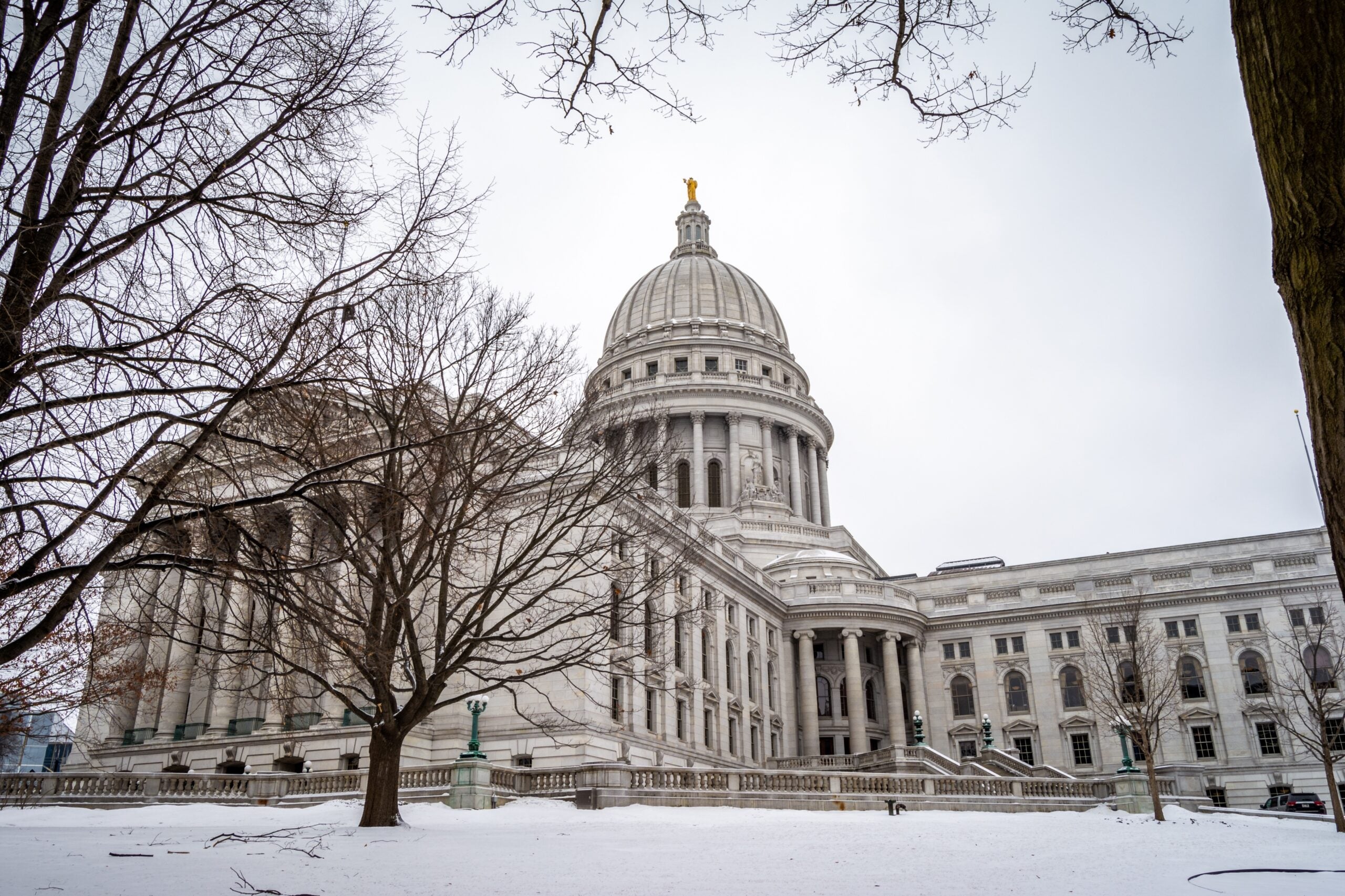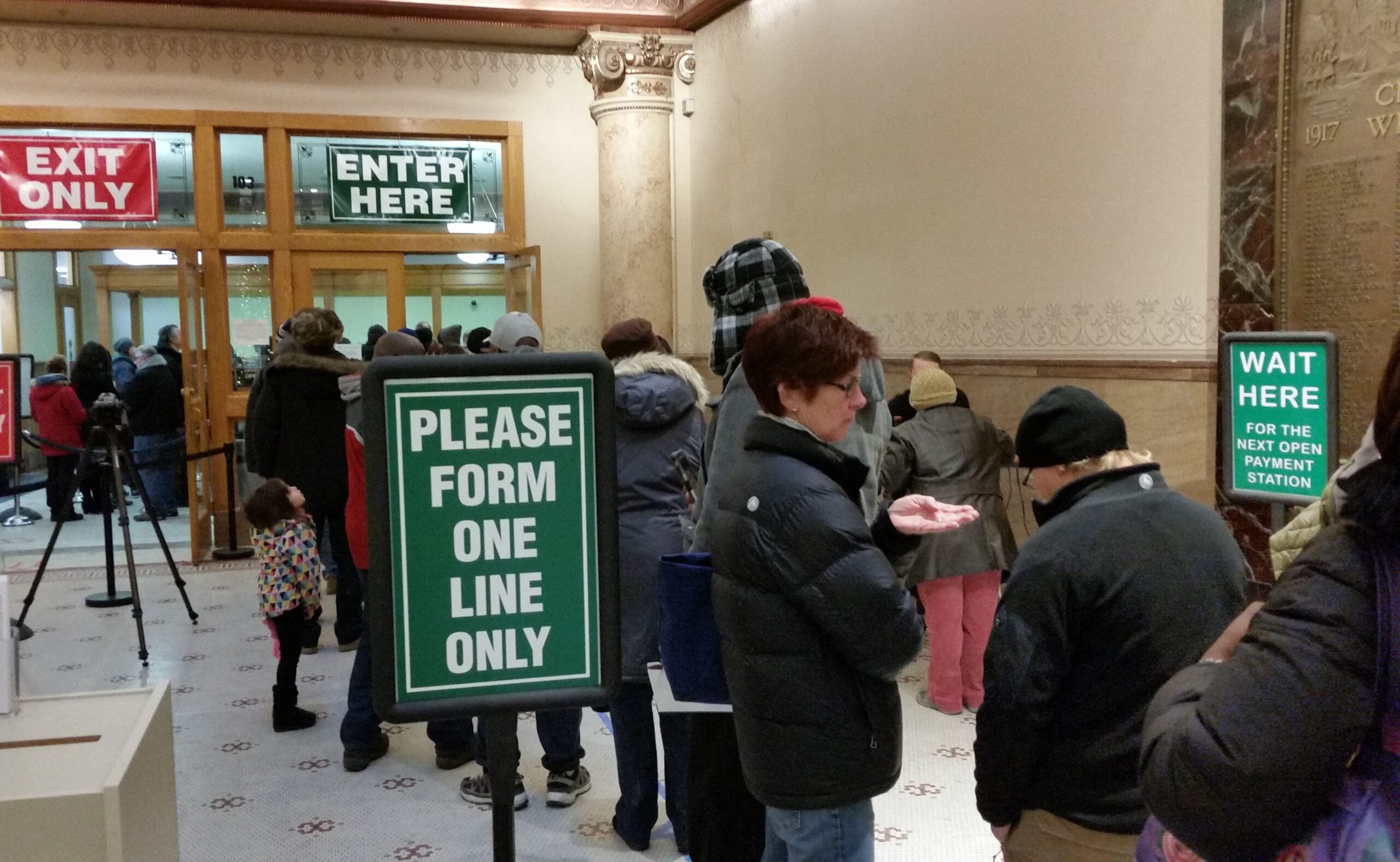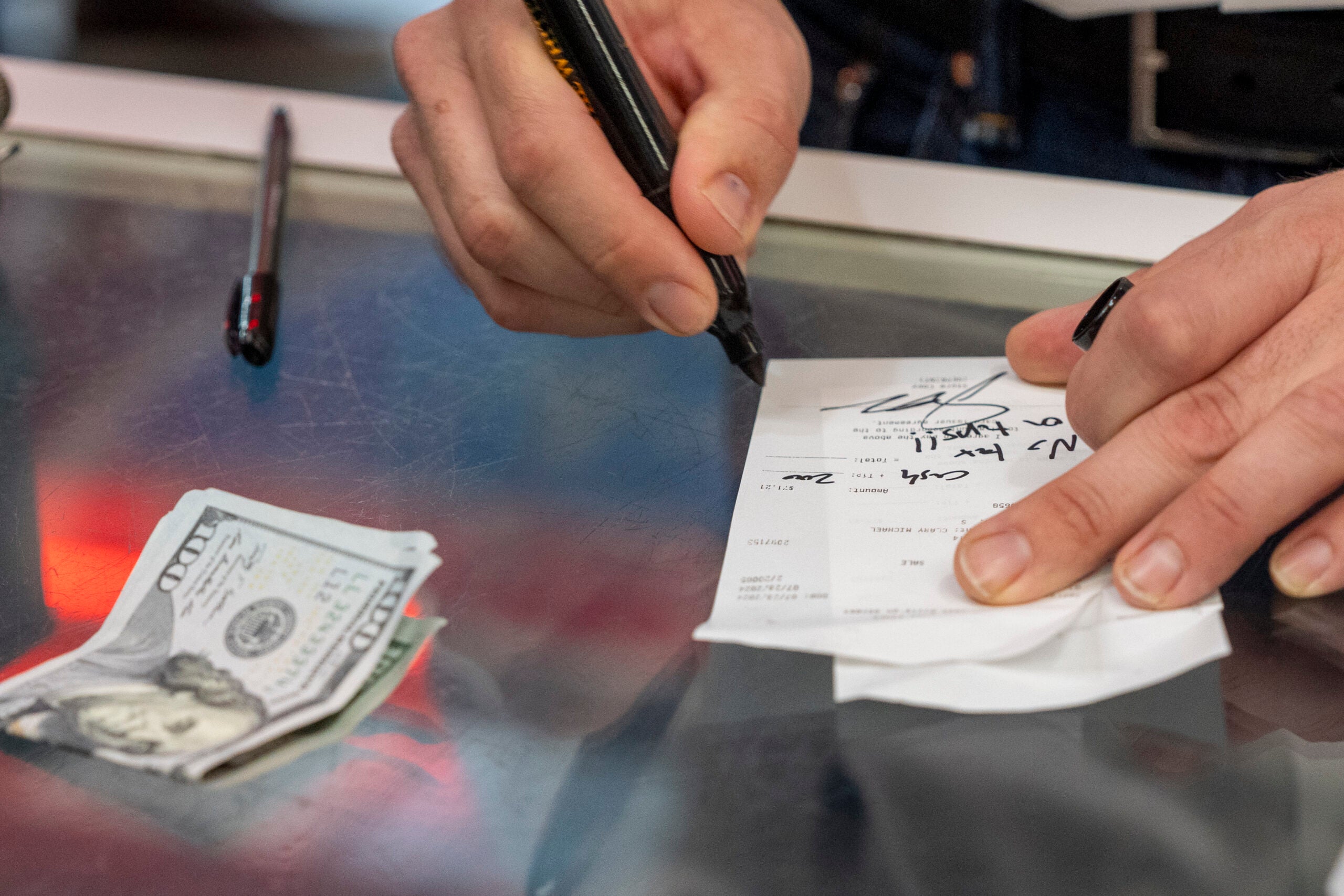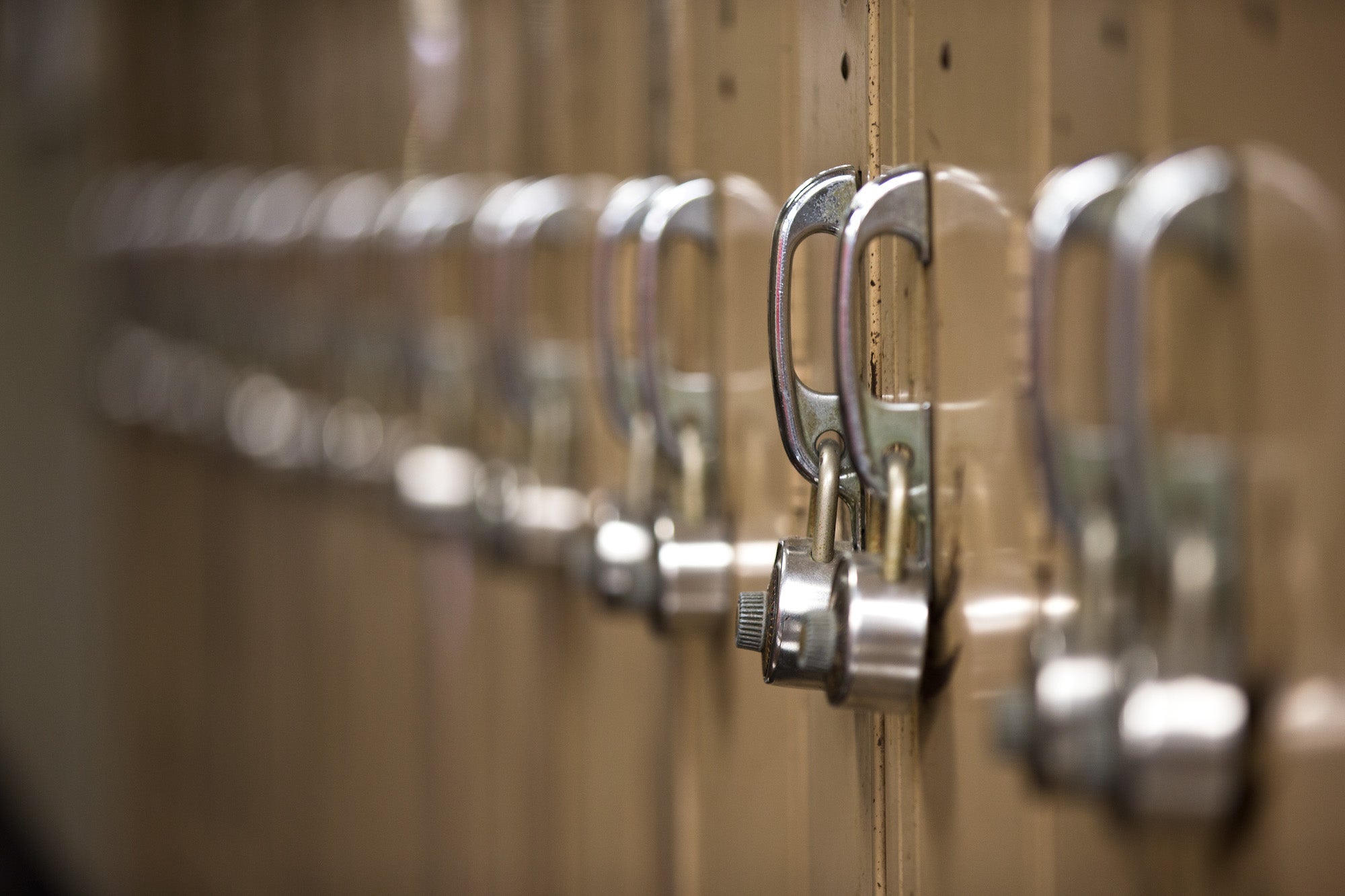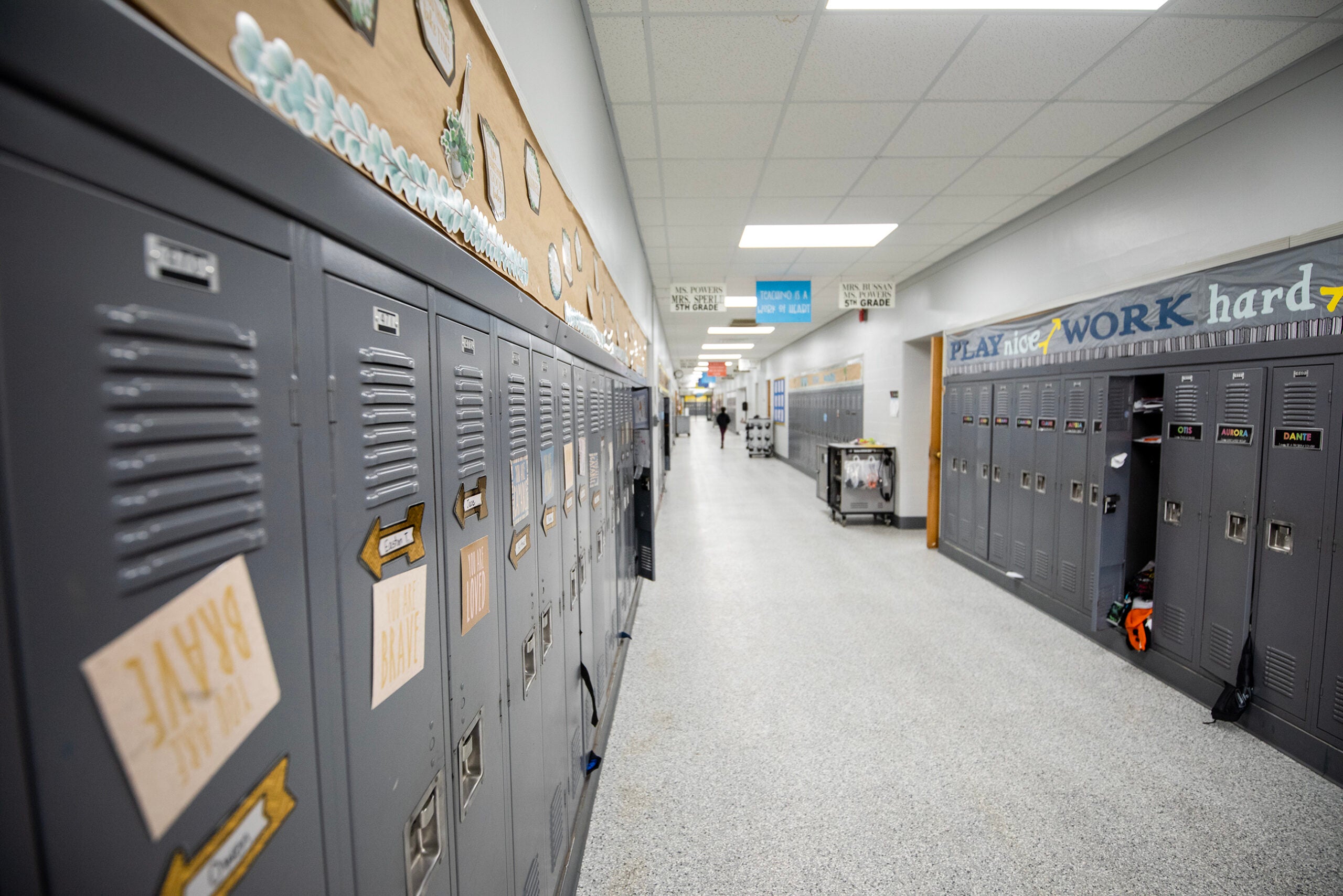Wisconsin taxpayers would save an average of $105 annually under a proposed income tax cut unveiled Friday by GOP lawmakers, but Gov. Tony Evers’ approval of the plan is uncertain.
Republicans would pay for the proposal with a recent influx in state revenue collections. The Legislature’s nonpartisan budget office announced last month the state is expected to take in $818 million more in tax revenue than previously expected.
The governor has said he would like to spend the unexpected funds on schools, but Republicans have said for months they would like to use any extra state money for tax relief.
News with a little more humanity
WPR’s “Wisconsin Today” newsletter keeps you connected to the state you love without feeling overwhelmed. No paywall. No agenda. No corporate filter.
The tax break would be on top of an income tax cut already approved in the current state budget.
“I think we’ve done a pretty good job of funding schools,” said Rep. Joan Ballweg, R-Markesan, at a Friday press conference at the state Capitol. “This is going to put money in the pockets of our low- and middle-income tax filers.”
Ballweg said Republicans did not speak with the governor before unveiling the proposal. Evers’ office released a statement critical of the plan soon after the Republicans’ announcement.
“The governor’s education plan provides an opportunity for Assembly Republicans to deliver on their promise to get to two-thirds funding for our schools before they take an eight-month vacation while still providing $130 million to help reduce property taxes across our state,” said Evers’ spokesperson, Britt Cudaback. “Unfortunately, Assembly Republicans made it clear today that they would rather break their promise to the people of our state than work together on funding our schools and reducing property taxes in Wisconsin.”
Overall, the GOP plan would cost the state about $392 million.
Individual income taxes would be cut, beginning in the 2020 tax year, to the tune of about $247.7 million by increasing the standard deduction for each type of tax filer.
The personal property tax exemption would change state law so that businesses would not need to include the value of machinery and tools in their personal property. That is expected to cost the state $44.7 million annually, according to the Legislature’s budget office.
Finally, $100 million of the funds would be directed toward paying down some of the state’s debt.
“I’m excited that we’re chipping away at it,” Rep. Jon Plumer, R-Lodi, said of the state’s debt burden.
State law requires that half of any unexpected windfall from tax collections must go into Wisconsin’s so-called “rainy day fund.” Under the plan, the balance of that fund at the end of the 2019-21 biennium would be $956 million. That’s less than a projected balance of $1.08 billion if the GOP plan doesn’t pass.
The state would also have a $351.6 million balance in its general fund, which is what it uses to pay for things like schools, health care and roads.
The proposal has support in both chambers of the GOP-controlled Legislature.
Senate Majority Leader Scott Fitzgerald, R-Juneau, released a statement Friday morning praising the plan.
“Wisconsin Republicans are once again putting taxpayers first,” Fitzgerald said. “Our reforms have left the state with a massive surplus that belongs to the taxpayers.”
Wisconsin Public Radio, © Copyright 2025, Board of Regents of the University of Wisconsin System and Wisconsin Educational Communications Board.

